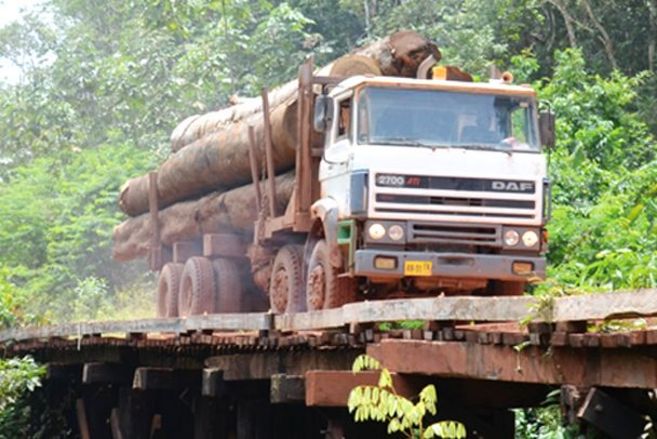Project
Incentive effects, acceptance and climate effectiveness of different remuneration options for climate protection in forestry (AnAKHon)

Incentive effects, acceptance and climate effectiveness of different remuneration options for climate protection in forestry (AnAKHon)
Climate change poses enormous challenges for forest management. According to the Climate Protection Act, the contribution of German forests to emission reductions in the Land Use, Land-Use Change and Forestry (LULUCF) sector is expected to increase significantly. Similarly, forests need to be adapted to climate change to ensure their long-term ability to mitigate climate change and provide other ecosystem services. The German Bundestag has therefore mandated the federal government to establish a permanent system to reward forest ecosystem services. The AnAKHon project aims to provide a basis for decision-making by assessing the incentive effects, the acceptance and the climate effectiveness of different options for climate protection in German forestry will be scientifically analyzed.
Background and Objective
The aim of the project is to determine the effectiveness of compensating climate protection and climate adaptation measures in forests. To this end, the project explores the extent to which forest owners would use relevant funding opportunities, how strongly they respond to financial incentives, and how their willingness to implement such measures could be increased.
Based on this, it will be possible to estimate the overall area potential of forestry measures that can be supported, the potential climate protection impact that can be achieved, how this develops over time, and finally, the implementation costs for enterprises that may be associated with it – a necessary prerequisite for designing funding schemes as efficiently as possible.
The project results are intended to provide policymakers with information on the suitability of forestry measures for climate protection remuneration systems, as well as on the quantitative and cost-related impacts of these measures.
Approach
The climate protection service provided by forests is based on their ability to absorb CO₂ from the atmosphere during tree growth and store it over the long term.
In the first work package, existing forest growth models – specifically, forestry yield tables – are processed in such a way that, in addition to above-ground merchantable timber volume, they also show the development of total above-ground tree biomass over stand age, as well as the carbon stored in it. This includes the juvenile stage of stands, which is not depicted in traditional yield tables. The calculation of carbon content and its conversion into CO₂ follows international calculation guidelines, which are also mandatory for national inventory reports in the German greenhouse gas inventory.
In the second work package, the study examines how the implementation of the funding program “Climate-Adapted Forest Management” affects carbon storage and the opportunity costs of raw timber production in typical model forest enterprises. For this purpose, the forest economic simulation model FESIM is used to compare how growth and yields develop over the next 200 years in enterprises that either implement or do not implement the twelve measures of the funding program. The analysis is carried out in five-year steps for three model enterprises: one dominated by spruce, one by pine, and one by deciduous tree species. The required input data come from the BMELH’s test enterprise network for forestry; for modeling carbon stocks, the above-mentioned carbon yield tables were integrated into FESIM.
Finally, in the third work package, the forest owners themselves have their say. Through several surveys, the study aims to determine to what extent they are willing to implement specific forest climate protection measures, what level of compensation they expect in return (“willingness to accept”), and how strongly this compensation and other relevant factors influence their willingness to implement. The surveys target private and municipal forest owners as well as private farmers. The measures in question include refraining from timber harvesting on parts of the forest area, cultivating fast-growing non-native tree species, and afforesting land previously used for agriculture.
Preliminary Results
The main result of the first work package is two sets of carbon yield tables: one based on the traditional SCHOBER yield table collection and the other on the 4th generation yield tables according to ALBERT et al. (2024). These yield tables were created for beech, oak, spruce, pine and Douglas fir, each for different yield classes and starting at the age of one year, thus also reflecting the juvenile phase of forest stands. A comparison with estimates based on traditional expansion factors shows that these significantly overestimate the carbon content in forest stands compared to our results – by about 20-35%, with larger deviations for old stands and poorer representation of juvenile growth.
In the second work package, the effects of the ‘Climate-adapted forest management’ funding programme on opportunity costs and carbon storage were analysed. These vary greatly depending on the initial situation of the enterprise, in particular the tree species composition, and change over time. Three of the twelve programme criteria have no long-term impact on opportunity costs and carbon storage (K1 advance regeneration, K2 natural regeneration, K3 artificial regeneration). The same applies to the renunciation of fertilisation and plant protection (K10), which are uncommon in German forests anyway. Other criteria such as C5 (mixed stands) and C9 (extended skid trail spacing) incur costs with questionable climate impact. Stand regeneration after calamities through succession initially saves costs, but in the long term leads to lower carbon storage and high opportunity costs. Refraining from clearing areas after calamities (K6), deadwood enrichment (K7), habitat tree preservation (K8) and refraining from timber use (K12) increase costs, but also promote carbon storage. Rewetting (K11) proves to be expensive and can even reduce the carbon storage in the timber stock.
According to the owner survey in the third work package, only around one third of farmers would consider afforestation in principle; with appropriate subsidies, they would be prepared to make an average of 4.5% of their land (with an average farm size of 60 hectares) available. Around 47% of the private forest owners surveyed have old deciduous forest stands; two thirds of them would be prepared to make around 3 hectares available for afforestation. Around 47% of the private forest owners surveyed have old deciduous forest stands; two-thirds of them would be willing to set aside around 3 ha each. 65% have reforestation areas (average size 5 ha), more than half of which would be suitable for fast-growing guest tree species.
Various measures of varying effectiveness are available to strengthen climate protection through/in forests. However, it seems impossible to achieve the sectoral targets of the Climate Protection Act through forestry measures. Furthermore, the necessary adaptation of forests to climate change, which is also a prerequisite for sustainable climate protection through forests, must not be neglected.
Thünen-Contact

Alumni
Involved external Thünen-Partners
- Christian-Albrechts-Universität zu Kiel
(Kiel, Deutschland)
Funding Body
-
Federal Ministry of Agriculture, Food and Regional Identity (BMLEH)
(national, öffentlich)

Duration
6.2023 - 12.2025
More Information
Project status:
ongoing
Publications
- 0
Brinkord M, Seintsch B, Schicketanz D, Elsasser P (2025) Anreizwirkungen, Akzeptanz und Klimawirksamkeit unterschiedlicher Honorierungsoptionen für den Klimaschutz in der Waldwirtschaft. In: RessortForschtKlima (ed) Ergebnisse aus drei Jahren Forschung für mehr Klimaschutz in Landwirtschaft, Wald und Ernährung : Abschlussbericht der RessortForschtKlima-Projekte. Göttingen: OpenAgrar, pp 6-67, DOI:10.3220/253-2025-220
- 1
Brinkord M, Seintsch B, Elsasser P (2025) CO2 estimation of tree biomass in forest stands : a simple and IPCC-compliant approach. Forests 16(10):1580, DOI:10.3390/f16101580
- 2
Brinkord M, Elsasser P, Seintsch B (2025) Kohlenstoff-ETs : bewährte Tafeln, neue Einsichten - praxisnah. AFZ Der Wald 80(2):28-31
- 3
Elsasser P (2025) Wälder und Forstwirtschaft in der Klimapolitik : Chance oder Risiko? Land(1):47-51








